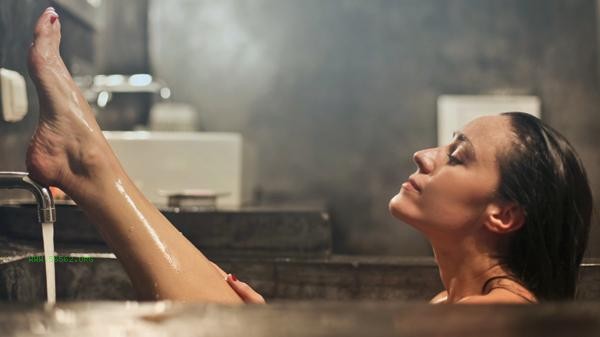Frequent bathing may lead to skin dryness, eczema, damage to the skin barrier, fungal infections, folliculitis, and other diseases. Excessive cleaning can damage the oil layer on the surface of the skin, leading to a decrease in skin defense function.

1. Dry skin
Frequent bathing can wash away natural oils on the surface of the skin, leading to accelerated evaporation of moisture from the stratum corneum. Dry skin is characterized by flaking, tightness, and in severe cases, cracking may occur. Suggest reducing the frequency of showering, keeping the water temperature below 40 degrees, and applying moisturizer promptly after showering. When the air is dry in winter, it is even more important to pay attention to skin moisturizing care.
2. Eczema
After excessive cleaning destroys the skin barrier, external stimuli are more likely to invade the skin and trigger inflammatory reactions. Eczema is characterized by erythema, papules with severe itching, and is more common on the flexed side of the limbs. When taking a shower, avoid using alkaline bath products and choose weakly acidic shower gel. If symptoms of eczema appear, seek medical attention promptly to avoid scratching and aggravating the skin lesions.
3. Damaged skin barrier
The sebum membrane and stratum corneum on the surface of the skin together form a natural protective barrier. Taking multiple baths every day can dissolve intercellular lipids, leading to increased transdermal water loss. After the barrier function is damaged, discomfort such as sensitivity and stabbing pain may occur. It is recommended to take a shower no more than once a day, avoid scrubbing vigorously, and control the shower time within 10 minutes.

4. Fungal infection
After the normal balance of the skin microbiota is disrupted, opportunistic pathogens such as Candida and Malassezia may overgrow. Common manifestations include tinea pedis, tinea pedis, etc., accompanied by desquamation and itching. After taking a shower, the wrinkled areas of the skin should be thoroughly dried to keep the area dry. Fungal infections are contagious and require treatment with antifungal drugs.
5. Folliculitis
Frequent hot water stimulation and scrubbing may cause damage to the hair follicle opening, allowing bacteria such as Staphylococcus aureus to invade. Manifested as red papules or pustules, often occurring on the chest, back, and limbs. Avoid using rough scrubbing tools during showering, and apply antibiotic ointment externally if purulent rash occurs. Maintaining skin health requires mastering scientific cleaning methods. It is recommended to adjust the frequency of bathing according to the season, once a day in summer and once every other day in winter. Choose mild weakly acidic cleaning products and apply moisturizer within 3 minutes after showering. Elderly people, infants, and patients with skin diseases need to control the duration and temperature of their bathing. If there are persistent skin problems, it is necessary to seek medical attention at a dermatologist in a timely manner and avoid self use of irritating topical medications.









Comments (0)
Leave a Comment
No comments yet
Be the first to share your thoughts!